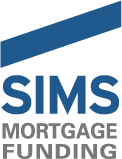FHA SECTION 223(f) – Multifamily Accelerated Processing (MAP)
Loans to purchase or refinance affordable and market rate multifamily rental housing
Definitions
- Affordable housing is defined as:
- Rent and income restrictions must be imposed, monitored and enforced by a governmental agency for at least 15 years after Final Endorsement, and
- Either
- a recorded Regulatory Agreement requiring the project to meet at least the minimum LIHTC restrictions of 20% of units at 50% of area median income (AMI), or 40% of units at 60% of AMI, with economic rents (i.e. the portion paid by the residents) on those units no greater than LIHTC rents, or
- a Project-Based Section 8 contract for 90% or more of the units.
Projects need not use LIHTCs to qualify for affordable underwriting so long as they meet the above requirements.
Program Features
- Loan is pre-payable, assumable and non-recourse; maximum term of 35 years with full amortization.
- The cost of repairs and initial deposit to a reserve fund for building/equipment replacement can be included in the financing.
- Commercial space is permitted up to 25% of the net rentable area of the project or 20% of effective gross income; commercial space is underwritten at the lesser of 90%, the actual rate, or market indications.
- The cost of rehabilitation must not exceed the greater: of a) approximately $16,000 per unit adjusted by a high cost percentage based on geographic location; or, b) involve the replacement of at least 2 major building components. Projects whose costs exceed these limits may qualify under Section 221(d)(4).
- Projects must reach 1 month of program debt service coverage least prior to filing an application and must be at 3 months of coverage before loan closing.
- Loan-to-value (LTV) and debt service coverage (DSC) requirements are based on project type and loan size.
Loans < $120 Million
Project Type | Loan to Value (LTV) | Debt Service Charge (DSC) |
Affordable | 87%* | 1.15 X* |
Market Rate | 85% | 1.176 X |
*90% LTV and 1.11 X DSC for Section 202, 90% or more Section 8.
Loans > $120 Million
Project Type | Loan to Value (LTV) | Debt Service Charge (DSC) |
Affordable | 87% or 80% (cash out) | 1.25 X |
Market Rate | 75% or 70% (cash out) | 1.30 X |
- HUD permits cash-out refinances at 80% LTV. Fifty per cent (50%) of any cash out proceeds after funding transaction costs, including the assurance of completion requirements, must be held in escrow by the Lender until the required non-critical repairs are completed and HUD approves the release.
- For market rate properties, the underwritten physical occupancy rate is the lesser of 93% or that indicated by the market. For affordable properties, the underwritten physical occupancy is up to 95% for loans with more than 80% LIHTC units; and, up to 97% for projects with more than 90% Section 8 or LIHTC units.
- HUD permits secured secondary financing up to total debt of 92.5% LTV, or higher, for affordable projects.
fees
0.30% | Application Fee to HUD |
1.00% | Upfront Mortgage Insurance Premium (.25% or .35% for tax credit/ affordable deals and .25% for “green” market rate deals |
Add New | Inspection Fee:
|
2.00% | Maximum Financing (Origination) Fee |
1.50% | Maximum Placement Fee |
2.00% | Costs of Issuance for Tax-Exempt Bond Transactions |
An annual 0.60% Mortgage Insurance Premium (.25% or .35% for tax credit/affordable deals and .25% for “green” market rate deals) is paid to FHA.
Escrows
- Escrows are required for property insurance, real estate taxes, and HUD mortgage insurance premiums.
- Replacement reserve escrow for on-going replacement of depreciable items is required for the term of the loan. Projects must obtain a new PCNA every 10 years, with the reserve for replacement deposit adjusted based on the results of the PCNA.
- Escrow equal to 120% of the cost of repairs is required at closing. Approximately 100% is funded from loan proceeds; the Borrower is required to fund the remaining 20%, which is released upon completion of repairs. Escrows are 110% for affordable loans, with the Borrower funding 10%.
